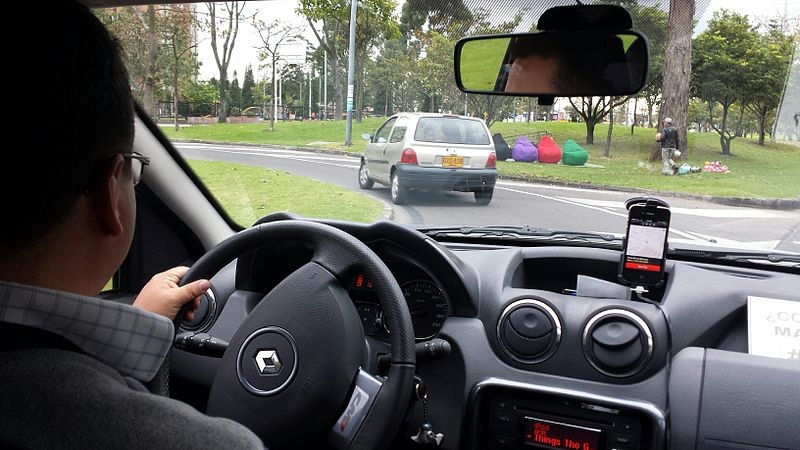A recent study highlights a concerning issue: many elderly Americans with cognitive decline continue to drive, creating significant road safety risks nationwide.
In the United States, approximately 48 million licensed drivers are aged 65 or older, with an estimated 17 per cent experiencing mild cognitive impairment. This situation presents a challenging dilemma—balancing the need for road safety with preserving the independence of older adults.
Research conducted by Brigham and Women’s Hospital in Boston emphasizes the urgent need for the healthcare system to improve its monitoring and evaluation processes for seniors who retain driving licenses.
The statistics are alarming: in 2020, motor vehicle accidents involving drivers aged 65 and above resulted in 7,480 fatalities and nearly 150,000 non-fatal injuries.
Key Takeaways
A recent study highlights a concerning issue: many elderly Americans with cognitive decline continue to drive, creating significant road safety risks nationwide.
- Determining an older adult’s driving competence can be challenging for family doctors during evaluations due to the limitations of cognitive screening tests.
- Comprehensive driving assessments that incorporate on-road observations and direct evaluations are necessary to determine when seniors should no longer be behind the wheel, but many face significant barriers to accessing these services due to cost.
- Medicare’s failure to address driving safety as a public health issue leaves the elderly population vulnerable to potential harm, and incorporating comprehensive driving evaluations into Medicare coverage could improve road safety for older adults while preserving their independence.
The healthcare system’s shortcomings
Determining an older adult’s driving competence can be a challenge for family doctors during evaluations. Cognitive screening tests often have limitations, making them unreliable even for experienced healthcare providers.
This situation reveals a critical issue within the healthcare system: the lack of reliable tools to determine when seniors should no longer be behind the wheel.
The need for specialized driving assessment tools, incorporating on-road observations and direct evaluations, has become increasingly evident. These comprehensive assessments offer concrete insights into an individual’s ability to navigate traffic safely.
Unfortunately, many seniors face significant barriers to accessing these services due to cost, with a substantial portion of the elderly population unable to afford the necessary evaluations without Medicare coverage.
Addressing the cost barrier
In Massachusetts, comprehensive driving evaluations can cost between $500 and $800—a steep price for many elderly individuals on fixed incomes. This financial burden creates a major barrier, leaving some seniors who may be impaired to continue driving, increasing risks for themselves and others.
However, conducting thorough driving assessments could significantly lower the substantial costs incurred by Medicare each year due to traumatic brain injuries among older adults. In 2016, the cost of traumatic brain injuries in seniors reached around $19 billion, underscoring the urgent need for action.
Advocacy groups like the Alzheimer’s Association and AARP stress the importance of requiring comprehensive evaluations for individuals who pose significant risks behind the wheel. Such assessments aim to identify seniors whose driving abilities have deteriorated to a point where they may endanger themselves or others.
When necessary, these evaluations recommend driving cessations, adjustments or accommodations to help older adults drive safely, improving both their well-being and the safety of the public.
Medicare already covers fall risk assessments conducted by occupational therapists, demonstrating the importance of preventive measures in maintaining seniors’ safety. Given the similarities between fall risk and driving risk assessments, extending coverage to include comprehensive driving evaluations is logical.
A call for change in Medicare policy
Medicare’s failure to address driving safety as a public health issue leaves the elderly population vulnerable to potential harm. The current system provides no coverage for driving assessments, even though these evaluations could be a critical tool for preventing accidents and injuries.
By incorporating these assessments into Medicare coverage, the program would not only improve road safety for older adults but also preserve their independence.
As experts continue to highlight the importance of safe driving among seniors, it is clear that a shift in policy is necessary.
Addressing the issue at a systemic level will involve coordinated action from both Congress and healthcare providers. Policymakers must act quickly to ensure the safety of older drivers while safeguarding their right to maintain their autonomy.
Advancements in technology and data collection
With the ongoing advancement of technology, lawmakers now have access to an expanding array of tools to address the challenges posed by aging drivers.
For example, GPS-logged driving data and simulator technology present promising opportunities to improve the accuracy and effectiveness of driving assessments.
These developments can create more precise evaluation frameworks that incorporate critical indicators of unsafe driving behaviors, paving the way for safer roads and better outcomes for older adults.
The cost of neglecting senior driving safety
The financial consequences of failing to address impaired driving among seniors are far-reaching. Inadequate attention to this issue could lead to a greater number of traffic-related incidents, resulting in more injuries and deaths.
By emphasizing the importance of thorough driving assessments and utilizing technological advancements, lawmakers can take meaningful steps to prevent these devastating outcomes while significantly improving safety for all road users.
Much like how airlines prioritize pilot safety through rigorous evaluations, it is equally essential for health experts to adopt similar practices for seniors.
As cognitive, visual, and motor skills decline with age, older adults may face growing difficulties in safely navigating the roads. Evaluating their driving abilities through comprehensive assessments ensures these declines are identified and addressed, helping to prevent accidents before they occur.
A crucial step for protecting road users
The importance of comprehensive driving evaluations cannot be overstated. These assessments allow health specialists to determine not only cognitive function but also visual acuity and physical dexterity—skills that are critical for safe driving.
Without these evaluations, many seniors may continue to drive without realizing their abilities have diminished, putting themselves and others at risk.
The impact of impaired driving is a pressing public health concern. Medicare’s failure to address this issue leaves a gap in the healthcare system, one that could be filled by offering coverage for comprehensive driving evaluations.
With these assessments in place, healthcare providers can offer seniors a safer way to maintain their independence while protecting road users from potential hazards.
The path to senior-friendly transportation
As the population of older drivers grows, policymakers must consider alternatives to traditional car ownership to support the continued independence and well-being of seniors.
While comprehensive driving assessments are essential, so too are alternative transportation solutions that cater to seniors’ unique needs.
Expanding public transportation services, promoting shared mobility programs, and investing in technology designed to improve road safety can help older individuals stay mobile while reducing the risks associated with driving.
Senior-friendly transportation solutions must be accessible, affordable, and designed to meet the diverse needs of older adults. These options should offer a comprehensive range of alternatives, from expanded transit services to technology-driven solutions that prioritize safety and convenience.
With such solutions in place, older adults can maintain their independence without putting themselves or others in danger.
The road ahead
Addressing the challenges of aging drivers requires a multifaceted approach that combines legislative action, healthcare system improvements, and the development of senior-friendly transportation solutions.
Policymakers must prioritize driving safety for older adults to ensure they remain safe on the roads while preserving their autonomy.
Now is the time for change. Policymakers can protect older drivers and other road users from unnecessary risks by enacting policies that support comprehensive driving evaluations and exploring alternative transportation options.
Such an approach allows seniors to remain independent while driving safely and responsibly.
In conclusion, the driving capabilities of the aging population must be addressed through a blend of improved healthcare evaluations, Medicare policy reforms, and expanded transportation alternatives.
By making these necessary changes, policymakers can provide older adults with the tools and support to remain safe and independent drivers in an evolving world. The path forward is clear, and the time to act is now.















